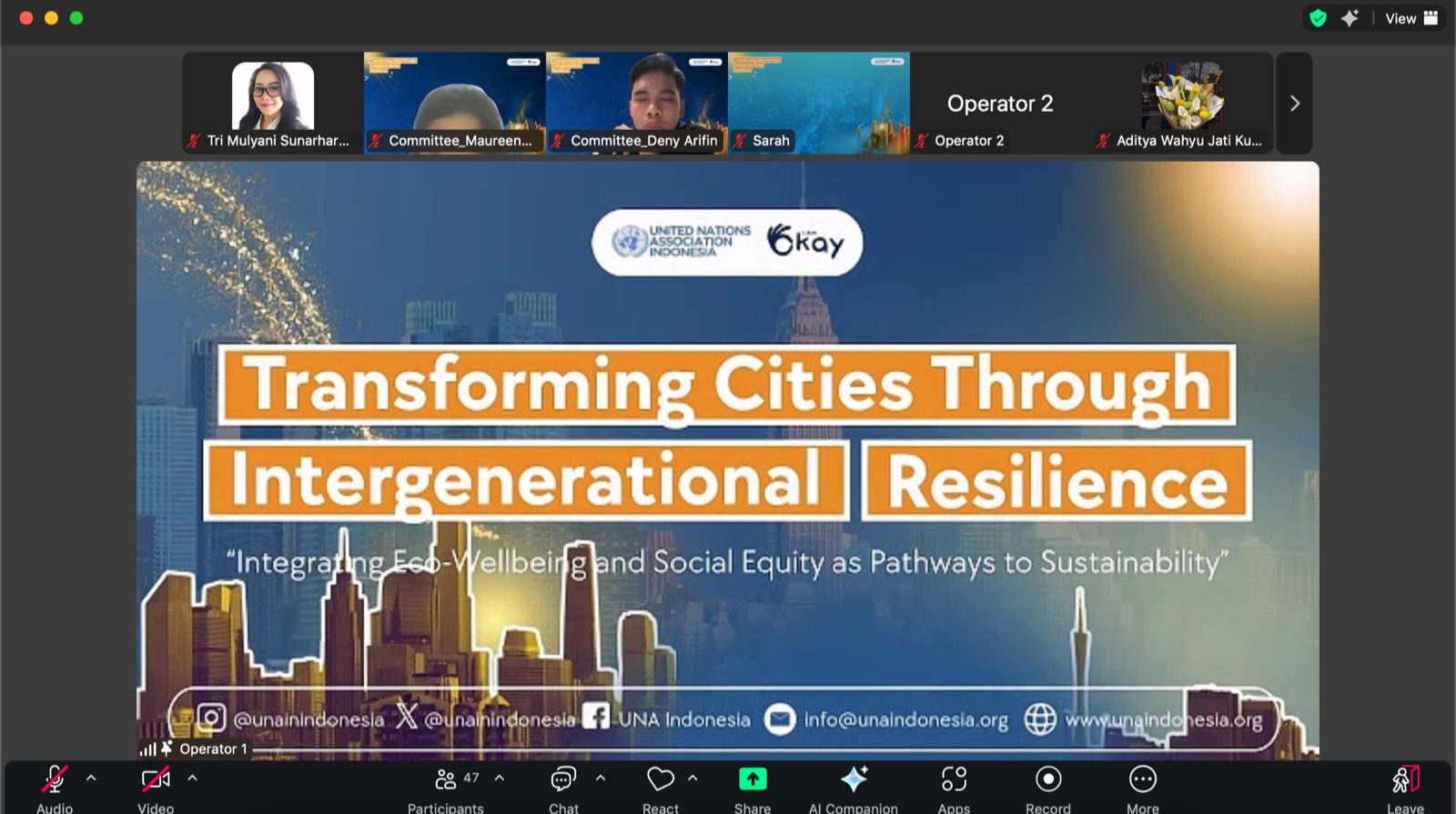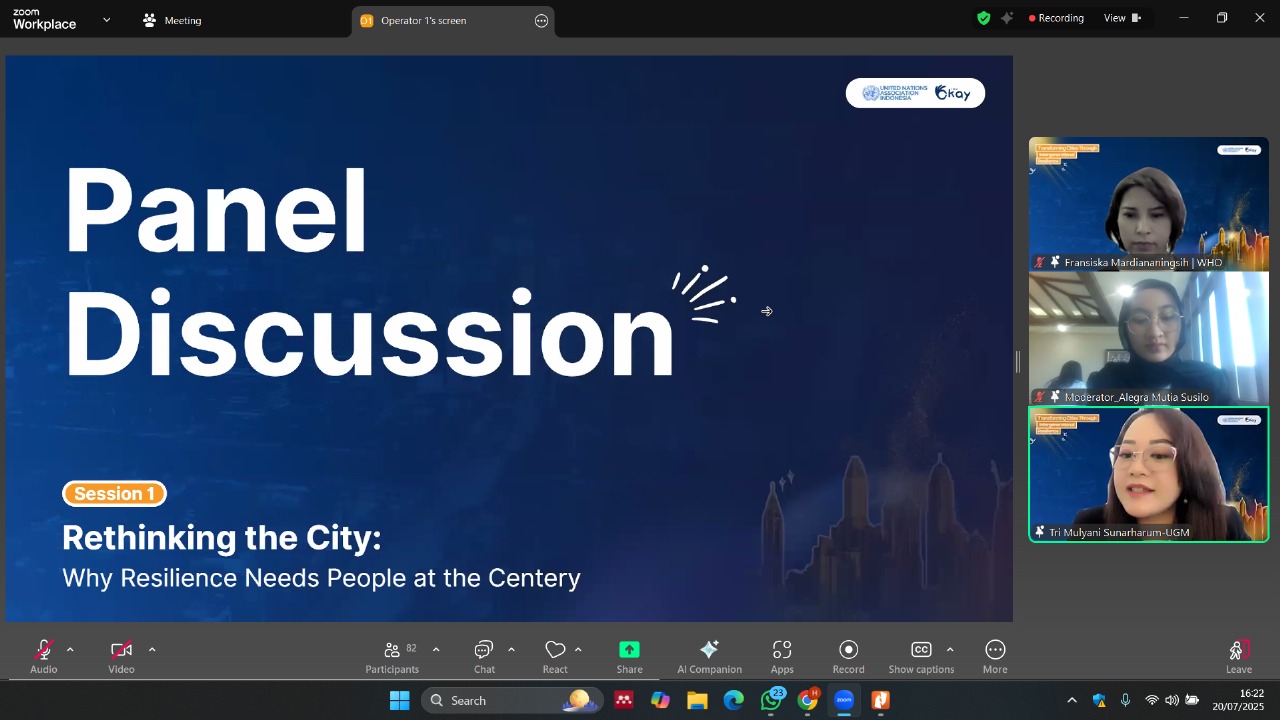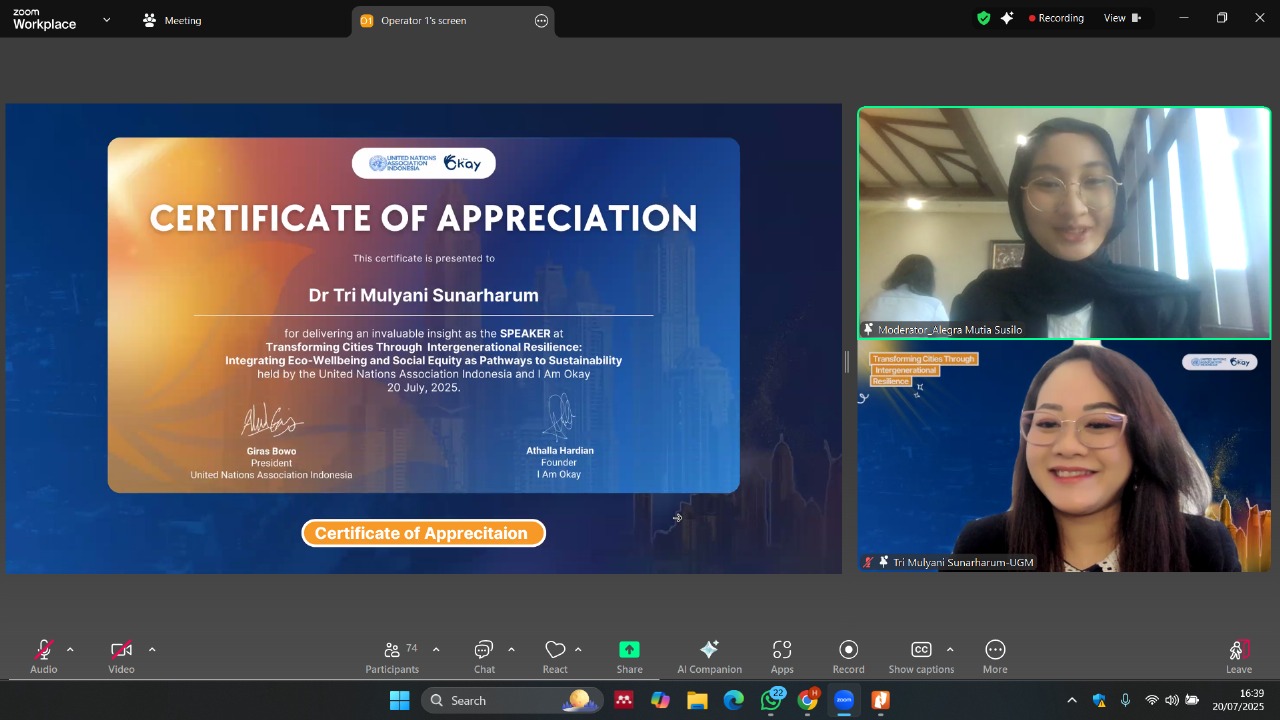Amid the growing concerns around mental health in major cities, a crucial question arises: are our cities truly designed for people?
July 20, 2025—Addressing this issue, Dr. Ir. Tri Mulyani Sunarharum, S.T., a lecturer and researcher from the Department of Architecture and Planning, Faculty of Engineering, Universitas Gadjah Mada, delivered a powerful message in a national discussion forum titled Transforming Cities Through Intergenerational Resilience: Integrating Eco-Wellbeing and Social Equity as Pathways to Sustainability. The event, initiated by I AM OKAY X UNA Indonesia, was held via Zoom and brought together speakers from various disciplines, all with a shared concern for sustainable urban development.
In her presentation, Bu Yani spoke on the theme Human-Centered Design & Urban Mental Well-being, covering several key topics: human-centered design; urban planning as a determinant of health and well-being; public health, planning, and neuro-urbanism; quality public spaces; and recommendations for healthier cities and communities. Each part was delivered clearly and engagingly, connecting theory, global case studies, and real challenges faced by Indonesian cities. Her session offered fresh insights into how urban design and planning can become critical tools for improving the mental well-being and overall quality of life for city dwellers.
The forum also featured a panel discussion and Q&A session. In the panel, Bu Yani contributed to a vibrant dialogue under the theme Rethinking the City: Why Resilience Needs People at the Centre, emphasizing that cities should not just be resilient in structure, but also in social and emotional dimensions.
Her presentation strongly aligned with several key Sustainable Development Goals (SDGs), including:
- SDG 3 – Good Health and Well-being: highlighting the importance of integrating mental health into urban planning;
- SDG 10 – Reduced Inequalities: advocating for equal access to safe and healthy spaces, especially for vulnerable groups;
- SDG 11 – Sustainable Cities and Communities: promoting inclusive and age-friendly public space design;
- SDG 13 – Climate Action: connecting eco-wellbeing with climate mitigation and urban adaptation strategies.
The event served as a timely reminder that cities are not just made of concrete and asphalt, but also of safety, comfort, and human connection. Through an intergenerational and cross-sectoral approach, such as the one promoted in this discussion, urban planning can move forward to better support the holistic well-being of urban communities: physically, mentally, and ecologically.
Reported by Rindi Dwi Cahyati



